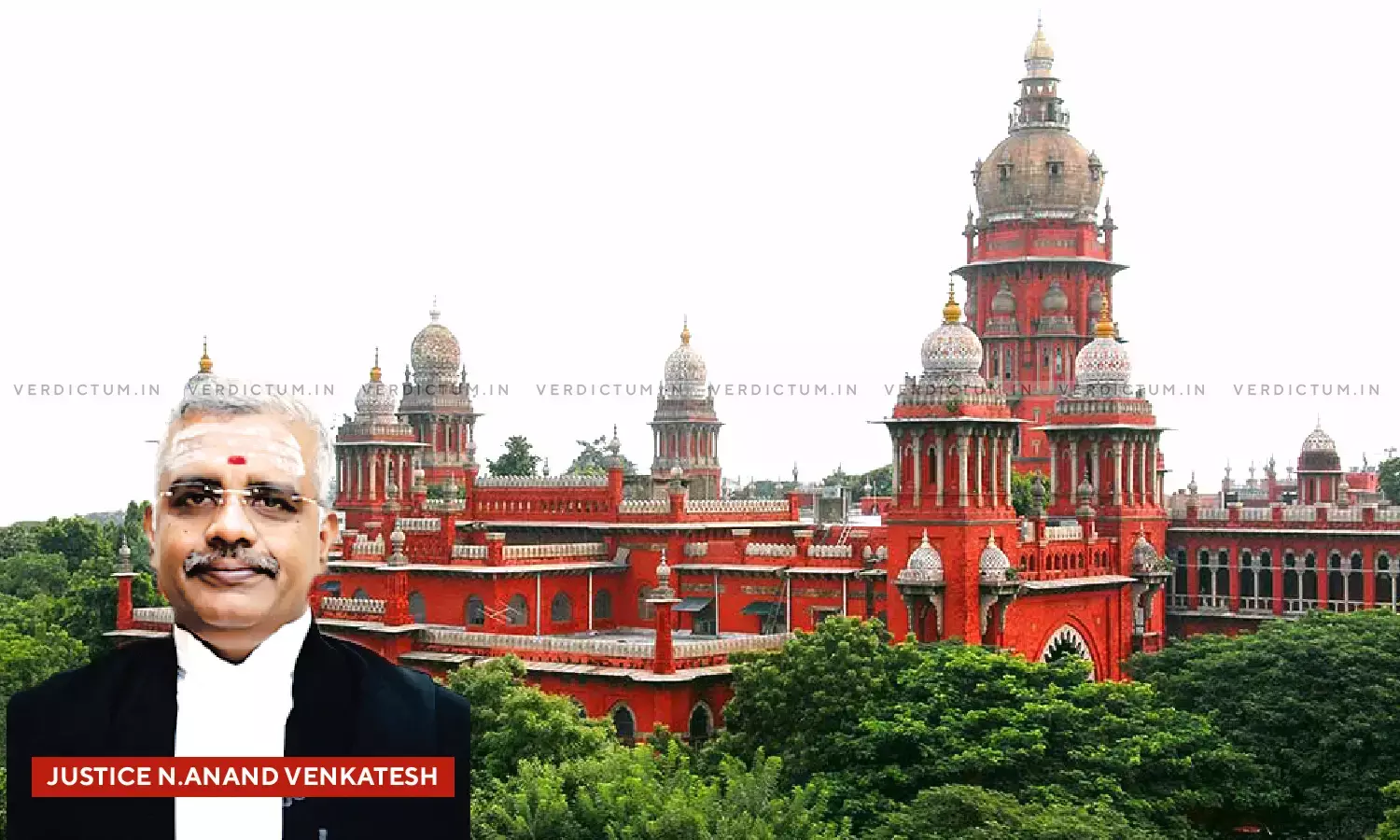Breaking | 'Singing Rama Nama, Bhajans Not Prohibited': Madras HC Intervenes To Allow Live Streaming Of Ram Mandir Pran Pratishta Ceremony By Hindu Organisation

Justice N. Anand Venkatesh, Madras High Court
The Madras High Court permitted the live streaming by the Viveka Hindu Movement of the Pran Pratishta Ceremony of the Ram Mandir.
This intervention came in response to a Writ Petition filed by the Viveka Hindu Movement seeking directions against the Avadi Police to not interfere in the live streaming of Ram Mandir’s Prana Pratishtha Ceremony at KKR Kalyana Mandapam, Pattabiram.
The Bench of Justice N Anand Venkatesh addressed the issue of the Avadi Police's refusal to authorize both Live Streaming and Bhajans in connection with Ram Janmashtami.
Senior Advocates G. Karthikeyan and S. Ravi appeared for Petitioner and Additional Public Prosecutor A. Damodaran appeared for the State.
A Writ Petition was filed by the Viveka Hindu Movement, seeking directions against the Avadi Police to not interfere in the live streaming of Ram Mandir’s Prana Pratishtha Ceremony.
The petitioner argued that the arrangement of devotional songs (bhajans) and charitable food distribution (Annadhanam) aimed to commemorate the consecration of Sri Ram Temple at Ram Janma Bhumi in Ayodhya. The Petitioner contended that historically, no permission from authorities was required for similar events.
The Court granted its approval to the requests under specific stipulations. Initially, the Court noted that obtaining police authorization was not mandatory for organizing devotional songs (bhajans), Live Streaming of Prana Prathista, Annadhan, etc., within private temples, community halls, and Kalyan Mandabams.
Nevertheless, the Bench observed that in the occurrence of law and order concerns, the police retains the authority to oversee and regulate such events. Similarly, for temples under the purview of the Hindu Religious and Charitable Endowments (HR and CE) department, comparable programs may be subject to police regulation.
The Court noted, “following has been made clear by the Government and they are;
(a)The functions / Bhajans / Annadhanams that are conducted in private enclosures like mandapams, private temples and any other private place etc., does not require any permission from the police. It will be left open to the organizers to make arrangements for live streaming of the Pran Prathishta at Ayodhya.
(b)Where, by conducting such functions, there is a possibility of spill over to the place which is accessed by the general public, the same has to be informed to the police in order to enable the police to take necessary measures to keep the situation under control and to ensure that no disturbance is caused to the free movement of the general public.
(c)If such functions are planned to be conducted within temples, which are within the control of the HR & CE Department, the concerned official belonging to the Department must be informed about the same before hand, and the permission will be granted subject to reasonable conditions imposed by the Department, and
(d) Wherever, considering the local situation, the police is of the opinion that the area is sensitive, it will be left open to the police to impose such restrictions and to ensure that the function does not lead to any unnecessary law and order problem”.
The Court also observed that the State Government and the Police have clearly stated that organizing the event on the auspicious occasion, as mentioned above, are allowed. Singing Bhajans, chanting Rama Nama, and conducting Annadhanams are not inherently prohibited or restricted.
The Bench emphasized that these activities should be carried out responsibly and piously, ensuring that they do not lead to any law and order issues. All parties involved should refrain from spreading misinformation or incorrect details. It is essential for everyone to recognize that devotion to God is intended for promoting peace and happiness, and should not disrupt the societal equilibrium
Accordingly, the Court allowed the Writ Petition.
Cause Title: L.Ganapathy v The Assistant Commissioner of Police (WP 1430 of 2024)

